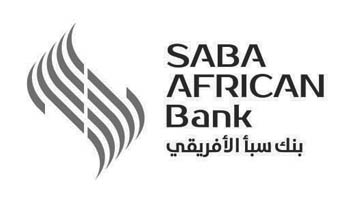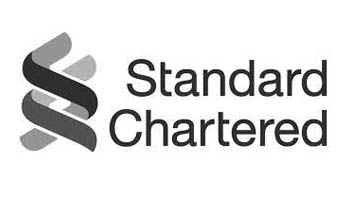Nigeria’s upcoming projects are a testament to the potential of the evolving and prosperous oil and gas sector.
Nigeria is a powerhouse of Africa in many sectors, but oil and gas has been the hallmark of the country’s economy for decades. For this reason, the Nigerian government is encouraging and facilitating special investment in gas so that the country may increase supply to power companies and move the economy from over-dependence in oil, which currently drives the majority of revenue in the country. Despite Nigeria’s natural gas reserves, the export of crude petroleum accounts for over 90% of its export earnings. Luckily, Nigeria has no short supply of major projects that are helping to evolve and enhance the nation’s oil and gas production. Hon. Chief Timipre Marlin Sylva, State Minister of Petroleum Resources has declared 2020 as the “Year of Gas”, stating that new initiatives will “drive gas commercialisation to create open and competitive access to Nigeria’s gas infrastructure”. Under the guidance of the Gas Master Plan, Nigeria is racing toward a future that will generate more power, provide employment and stimulate the economy from within.
According to Engr. Sarki Auwalu, the Director of DPR, “Many projects are only waiting for FDI, such as deep-water development and inland basin exploration. It is evident that the country is now looking more to be a global player rather than a simple revenue earner, which I give credit to the present administration.” One such project to revitalise the sector is LNG Train 7. The Nigeria Liquefied Natural Gas (NLNG) Train 7 project is an exciting new expansion of Nigeria LNG’s existing plant, which currently has six operational trains at work. Located on Bonny Island in Rivers State, the plant is capable of producing 22 million tonnes per annum of LNG (liquefied natural gas). This proves to be an incredible benefit for Nigeria as the LNG demand expected to increase by 72% between 2017 and 2030 worldwide.
LNG Train 7 is in accordance with the current administration’s Gas Revolution. As gas is a cleaner form of energy, this project will spur Nigeria’s gas sector for the industrialisation agenda, which is focused on domestic consumption rather than exportation. Not only that, another benefit of LNG Train 7 is that it will create over 40,000 direct and indirect jobs in Nigeria for local content, improving livelihoods on an even larger scale. This project is coming at the right time as Nigeria seeks to invest in new production as the nation readies for more foreign direct investment as it continues to excel among the top rankings of global LNG exporters.
The Ajaokuta-Kaduna-Kano (AKK) pipeline is a 614km-long natural gas pipeline currently being developed by the Nigerian National Petroleum Corporation (NNPC) and is a continuation of infrastructure build for the domestic gas market. The pipeline is slated to originate from Ajaokuta and pass through Abuja and Kaduna before ending at a terminal gas station in Kano. The AKK pipeline is envisaged as the first part of the Trans Nigeria Gas Pipeline Project (TNGP) development. “The AKK pipeline is part of the gas masterplan,” says Emeka Okwuosa, CEO of Oilserv. “It is going to move 1.5 billion scf of gas a day and provide resources for power generation and other energy requirements. It is not only a development of the north; it is such for the entire country. So, this single project can transform the whole of Nigeria in terms of industrial capacity.”
The TNGP, which is expected to be 1,300km in total length, forms a piece of the Trans Sahara Gas Pipeline (TSGP) system, which is envisaged to pump Nigerian gas through Algeria or Morocco to Europe. The pipeline project is being implemented via a build and transfer public-private partnership model, which harnesses the strength of both the private and public sectors. Not only will this increase gas availability, but the AKK natural gas pipeline will also reduce gas flare and environmental impact.
The Nigerian government plans to ensure that gas significantly contributes to the power sector, and the AKK natural gas pipeline is aligned with that agenda. The pipeline is intended to boost Nigeria’s electricity generation capacity, as well as strengthen the industrial sector within the country’s eastern and northern regions. The project is also expected to promote and increase the local usage of domestic gas, which will enable power-starved communities across the country to have greater access to electricity while providing stranded commercial and industrial customers with a cleaner and more efficient source of energy. On this note, Mele Kolo Kyari, Managing Director of NNPC, said: “We believe whatever can be achieved internationally, can be achieved locally. We are also counting on the support of our local and international partners, service providers as well as regulators across the industry value chain.” Additionally, the AKK pipeline is anticipated to increase the country’s revenue generation through the export of natural gas. The on-going implementation of the Gas Master Plan will continue to play an increasingly important role to ensure that Nigeria progresses forward towards the next level.
The Deepwater Bonga North project, which Shell Nigeria Exploration and Production Company (SNEPCo) and its partners manage, is an important milestone for Nigeria’s deepwater industry and has generated numerous jobs and businesses. Bonga North West ties into the existing Bonga vessel, one of the largest floating production, storage and offloading vessels in the world. The project team safely drilled and connected new wells in a highly challenging environment more than a kilometre below the ocean’s surface. Through close collaboration with the NNPC and industry regulators, the project has unlocked new energy resources to help meet the world’s growing demand.
In some of the highlights on Nigerian content development, 90% of the people who worked on the Bonga North West project during its four-year development were Nigerian. SNEPCo awarded the major engineering and construction contracts for the project to companies that were either indigenous, have local staff, or possess domesticated capabilities in the country.
Likewise, the Deepwater Bonga Southwest/Aparo (BSWA) project, spearheaded by Shell Nigeria Exploration & Production Company (SNEPCo) and its partners, will open further opportunities in the deepwater oil and gas sector in Nigeria, whilst creating significant benefits for the state. BSWA will be the first major deepwater project in Nigeria since Egina. BSWA has the potential to produce approximately 150,000 to 200,000 bpd, which will account for around 10% of Nigerian crude oil production.
Yet another promising project currently underway in Nigeria is the Ultra-deepwater Zabazaba-Etan project. The Zabazaba and the Etan fields are located in offshore Nigeria in the Niger Delta of the Gulf of Guinea, in water depths ranging from 1,200-2,400 metres. The deepwater project is expected to support small and medium-sized businesses in Nigeria, with half of the Zabazaba FPSO topside currently slated to be fabricated and integrated into the country. The Zabazaba and Etan fields are estimated to hold a combined total of 560 million barrels of oil equivalent.
Additionally, the Assa North/Ohaji South (ANOH) project is one of the seven gas production infrastructures in Nigeria in which the government of Nigeria has announced plans to reduce the reliance on oil in the country. As a joint gas project between Seplat Petroleum Development and NNPC, the plant will process wet gas which has a capacity of 300 standard cubic feet per day and will begin production works in the last quarter of 2020 with its major supply targeted to begin in 2021. When fully developed, the project will have the capacity to expand to 1.2 billion cubic feet per day. The ANOH project is a critical gas supply hub in Nigeria’s burgeoning gas-infrastructure network designed to provide the linkage between the Eastern, Western and Northern gas pipeline system. According to Austin Avuru, CEO of Seplat Petroleum, ambitious projects such as these require a few critical elements: “I would say, hard work, humility and integrity, (plus a good dose of God’s grace) will always, ultimately produce results.”
The Owowo project is a prime example of the gas revolution on the horizon. Nigeria has aspirations to boost oil production to closer to three million bpd over the coming years with the development of the Owowo field. The sandstone reservoir is estimated to hold 500 million to 1 billion barrels of recoverable oil, making it Nigeria’s largest oil discovery since 2004. Once fully running and connected, these initiatives will help propel Nigeria to the gas hub within West Africa.





















